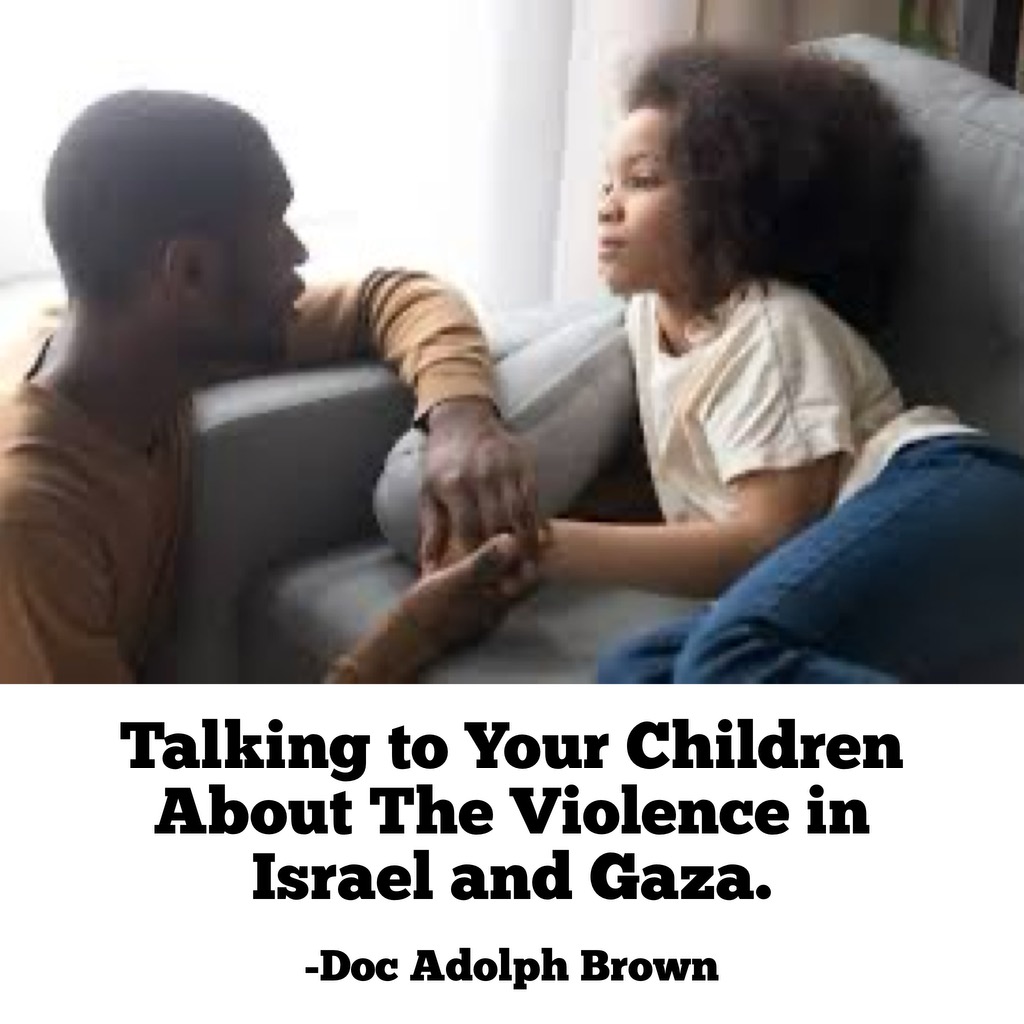Talking to Your Children About The Violence in Israel and Gaza. -Doc Adolph Brown

The ongoing conflict between Israel and Gaza has been a topic of great concern and debate worldwide. As parents, it is our responsibility to guide our children through difficult conversations and help them understand the complexities of such conflicts. Talking to our children about the violence in Israel and Gaza requires sensitivity, empathy, and a balanced approach. In this essay, we will explore the importance of discussing this issue with our children, provide arguments supported by examples, and conclude with the significance of fostering open dialogue.
Discussing the violence in Israel and Gaza with our children is crucial for their understanding of global events, empathy development, and the promotion of peace. By engaging in these conversations, we can equip our children with the necessary tools to navigate complex issues, challenge stereotypes, and foster a sense of compassion towards others by:
1. Promoting understanding and empathy:
One of the primary reasons for discussing the violence in Israel and Gaza with our children is to promote understanding and empathy. By explaining the historical context, the root causes, and the perspectives of both sides, we can help our children develop a more nuanced understanding of the conflict. For example, we can discuss the displacement of Palestinians and the historical significance of Jerusalem for both Israelis and Palestinians. By doing so, we encourage our children to see beyond the headlines and understand the human impact of the conflict.
2. Challenging stereotypes and biases:
Engaging in conversations about the violence in Israel and Gaza allows us to challenge stereotypes and biases that may be perpetuated by media or society. By encouraging critical thinking, we can help our children question preconceived notions and avoid generalizations. For instance, we can discuss how not all Israelis or Palestinians support violence and how it is essential to differentiate between individuals and the actions of governments or extremist groups.
3. Fostering a sense of compassion and peace:
By discussing the violence in Israel and Gaza, we can instill in our children a sense of compassion and a desire for peace. We can emphasize the importance of dialogue, negotiation, and understanding in resolving conflicts. For example, we can discuss the efforts made by peace activists, organizations, and diplomats to find a peaceful resolution to the conflict. By doing so, we empower our children to become advocates for peace and agents of change in their own lives.
In conclusion, talking to our children about the violence in Israel and Gaza is essential for their understanding of global events, empathy development, and the promotion of peace. By engaging in these conversations, we can equip our children with the necessary tools to navigate complex issues, challenge stereotypes, and foster a sense of compassion towards others. It is through open dialogue and education that we can raise a generation that strives for peace, understanding, and justice.



